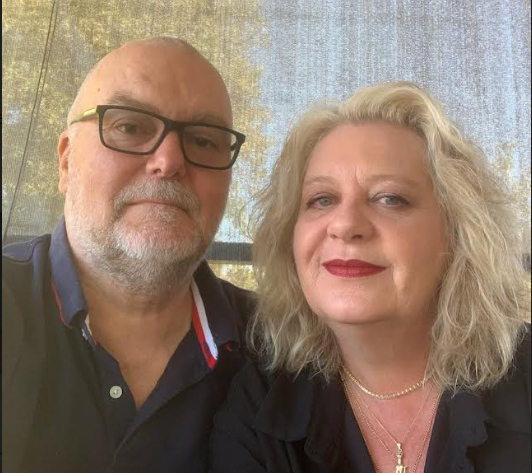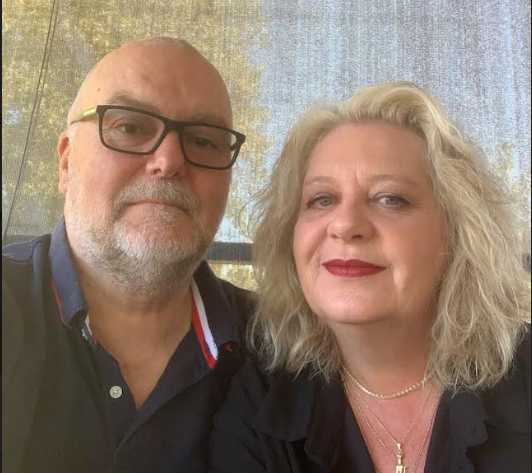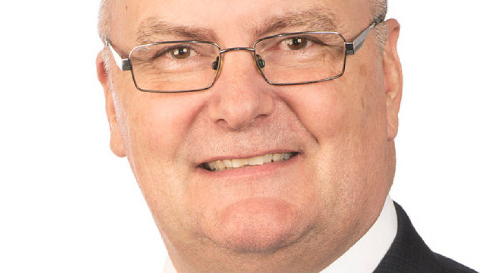Patrick Dare had built a high-flying career in IT and telecommunications for over 30 years, including working for household name firms.
But a few years ago the 58-year-old noticed something wasn't right, especially at the office.
"I wasn't reading emails correctly, I wasn't talking properly," he told 9news.com.au.
READ MORE: Promising new drug news for Alzheimer's sufferers
Partner Tanya Roach, 56, also recalls getting worrying phone calls from him, which he now cannot remember.
"Sometimes he would call me, he would be outside his work but he wouldn't know where he worked, or what building to go back into," she said.
Dare, from Brisbane, even went to a private hospital's emergency department feeling confused, but was sent away without answers.
"They couldn't find anything wrong. They weren't looking in the right places," Tanya said.
Incurable diagnosis confirmed
Finally, after Dare didn't improve he was given brain scans, which confirmed what the couple had begun to suspect over the past two years – he had early-onset dementia.
He was just 54.
READ MORE: 'Grief every day': Bruce Willis' wife posts heartfelt dementia message
Dare has frontal lobe dementia or frontotemporal dementia, a type more commonly diagnosed in people under the age of 65, according to Dementia Australia.
It's the same type actor Bruce Willis has.
There is no cure, but despite the dreadful diagnosis, the couple said knowing what had been changing Dare's behaviour was a relief.
"It explained everything that was going on. I told my work straight away and they were relieved as well. They knew it wasn't me," Dare said.
Dare was able to keep working for a few more years. But he was forced to retire in 2021.
"It was when a client started to notice some things that were different that I put my hand up and I left work in March 2021," he said.
Dare got an income protection insurance payout, and was also able to access his superannuation.
READ MORE: Heart disease overtaken as biggest disease burden for older Aussies
One of Australia's biggest killers on the rise
Dementia is a term used to describe a group of conditions characterised by gradual impairment of brain function which may impact memory, speech, cognition, personality, behaviour and mobility.
There are many forms of dementia, the most common being Alzheimer's disease.
And it's on the rise.
The number of Australians with early onset dementia is expected to grow from 28,650 double to 42,400 people by 2058.
Dementia is the second leading cause of death after heart disease in men, and the biggest killer of women.
British TV presenter Fiona Phillips recently revealed her Alzheimer's diagnosis aged 62. The disease killed both her parents.
READ MORE: How $325k was sent to wrong bank account after single digit mistake
'Hard to get the words out': How dementia changes a person
While Roach no longer leaves Dare alone at home, he wants doctors and other Australians to know having dementia isn't like they might think.
"It has that stigma of the old person in the shopping centre, getting angry and not knowing where they are," Dare said.
"The thing that stands out the most is probably my ability to talk.
"I find it hard to get the words out, which then causes me frustration which then causes me to get angry."
He also struggles to focus, but he still wants to be involved in life while he's well enough.
"I'm a reasonably functioning person," he said.
Dare operates best in the mornings, but he often goes back to bed after a few hours.
For now, he can still occasionally drive, Roach said.
The couple know they will face a tough time in the future as Dare's condition declines.
There are various new drugs in development, but they are far from being available to patients.
"We know it's going to progress and we know it's not going to be a great ending," Roach said.
However, for now, ever the dedicated careerman, Dare admits he still has a habit of checking LinkedIn daily on his computer.
"I see jobs there that I feel like I could easily do, and I can't," he said.
"It is very frustrating."
READ MORE: Man charged after hours-long plane stand-off
Early diagnosis important
Many consider dementia a disease that only impacts older people, which can get in the way of those with symptoms seeking a diagnosis at a younger age.
"Discrimination and lack of understanding about dementia can create barriers to talking about the condition, meaning people's concerns are not taken seriously which can also prevent people from seeking an early diagnosis," Dementia Australia CEO Maree McCabe said.
The Federal Government is working with state and territory governments to develop a 10-year joint National Dementia Action Plan.
"It will mean better-coordinated approaches to dementia risk reduction, early diagnosis and improvements in services for people living with dementia and their carers, including people with younger onset dementia," a spokesman said.
Federal Government is also spending $650 million over four years on dementia-related services.
READ MORE: Cook also got sick from 'poison mushrooms'
What are the symptoms of dementia
Symptoms of dementia occur when once healthy brain nerve cells stop working and lose connections with other neurons, and die.
Symptoms include:
- Memory loss, poor judgment, and confusion
- Difficulty speaking, understanding and expressing thoughts, or reading and writing
- Wandering and getting lost in a familiar neighbourhood
- Trouble handling money responsibly and paying bills
- Repeating questions
- Using unusual words to refer to familiar objects
- Taking longer to complete normal daily tasks
- Losing interest in normal daily activities or events
- Hallucinating or experiencing delusions or paranoia
- Acting impulsively
- Not caring about other people's feelings
- Losing balance and problems with movement
- Withdrawal and changes in mood or personality
For information visit Dementia Australia.
Sign up here to receive our daily newsletters and breaking news alerts, sent straight to your inbox.
Do you have a story? Contact journalist Sarah Swain on [email protected]





